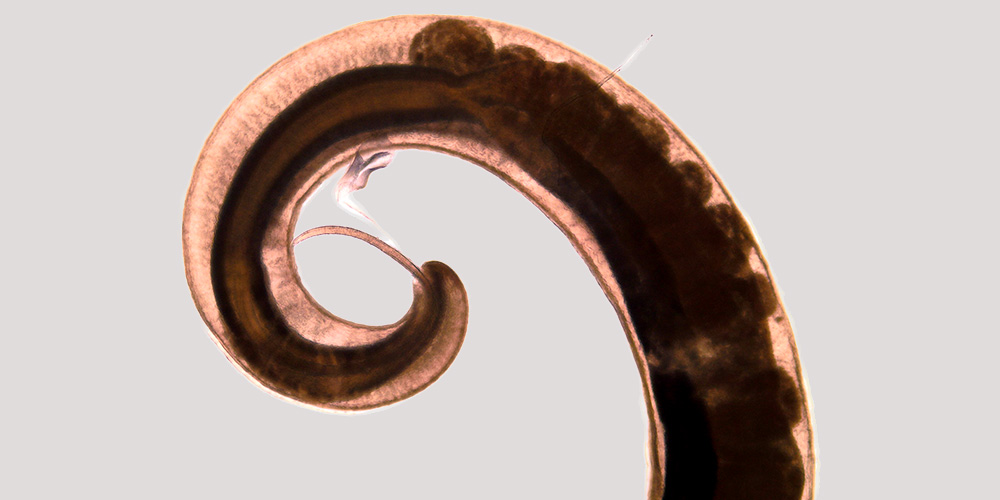Newly discovered parasitic worm handed over to Natural History Museum Basel
Researchers from the Swiss Tropical and Public Health Institute (Swiss TPH) and partners have discovered a new parasitic worm species named Trichuris incognita in Côte d’Ivoire. The discovery is now formally recognized through the official handover of preserved specimens to the Natural History Museum in Basel, in accordance with international scientific naming protocols.
19 June 2025
Whipworm infections affect approximately 500 million people worldwide, predominantly in children in low- and middle-income countries. These infections, caused by the parasitic worm Trichuris trichiura, can lead to significant health issues including abdominal pain, diarrhoea, and anaemia. Until now, it was assumed that all human whipworm infections were due to this single species.
However, researchers from the Swiss Tropical and Public Health Institute (Swiss TPH) and University of Basel, in collaboration with partners in Côte d'Ivoire and the University of Calgary, Canada, have identified a previously unknown species infecting humans. This discovery was made during a clinical trial in Côte d'Ivoire where standard treatments with albendazole and ivermectin showed lower efficacy compared to results in Lao PDR and Tanzania.
As the species looks exactly the same as Trichuris trichiura under the microscope, researchers first suspected drug resistance. Genome analysis then revealed that patients were infected with a different until then unknown species. The new species was named Trichuris incognita by the research team in reference to its ability to remain unnoticed until now.
Major implications for drug development
“This discovery has major implications for how we treat parasitic worm infections globally,” said Jennifer Keiser, Head of the Helminth Drug Development unit at Swiss TPH. “It is possible that patients in many regions have been infected with Trichuris incognita, while our best available treatment – the combination of albendazole and ivermectin – is not effective against it. The discovery further underscores the urgent need for new therapies against these neglected tropical diseases.”
Keiser is hopeful that the new drug emodepside, which showed very promising results in recent clinical trials, may prove effective against Trichuris incognita. Further studies will be necessary to confirm its efficacy. Swiss TPH is currently collaborating with Bayer to further develop emodepside.
Unknown global distribution
The new species has been confirmed primarily in Côte d'Ivoire. Its global distribution remains unknown, as comprehensive DNA sampling is still needed from other endemic regions.
“For Côte d'Ivoire, this discovery is crucial,” said Jean Coulibaly, researcher at the Centre Suisse de Recherches Scientifiques en Côte d’Ivoire. “This finding could change how we control whipworm infections across the country—and globally.”
Official hand-over to the Museum of Natural History Basel
Today, Swiss TPH officially handed over male and female specimens of Trichuris incognita, preserved in ethanol, to the Museum of Natural History in Basel. This step is part of the formal process required by the International Code of Zoological Nomenclature to register the species.
This article is an excerpt of a Swiss TPH press release.



